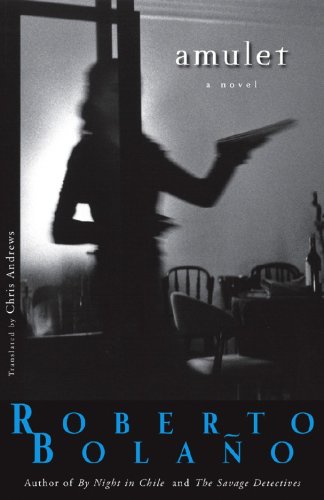 bolano’s characters are some of the most beautiful. they miraculously avoid sentimentality while achieving a too-beautiful-to-speak-of romanticism — though reducing them so is an error, that quality he gets really does tear me up…
bolano’s characters are some of the most beautiful. they miraculously avoid sentimentality while achieving a too-beautiful-to-speak-of romanticism — though reducing them so is an error, that quality he gets really does tear me up…
his characters remind me of the vow of poverty monastics make. it isn’t a negative vow–at least not for the nun. it is in fact a positive one, one that moves the renunciate closer to the divine. bolano’s poets and losers and mothers are an equal type. and one way to describe his natural, moving, ecstatic and elegiac style is to say that it simultaneously shows the mundane and profoundly human while it recognizes and manifests the divine (or maybe better said: the cosmic).
AMULET is a slowly shifting machine, moving from a narrative built first on a natural and sad and graceful character development into a kind of modernized persephone-in-hell myth then into a creepy symbolic tale (though for what is hard to say) and finally into a long description of an icy, abstract landscape.
i probably didn’t do a good job assigning the sections descriptions–and i missed a few–but there are distinct parts to this novel. and bolano gently leads the reader (and virgil and dante are explicitly mentioned) through these passages, a series of subtle changes. the book is one long song describing the horror story (that the narrator proclaims will not appear to be a horror story, but is, nonetheless) of living through history–in this case latin america’s revolutionary 60s and 70s.
here’s one paragraph, within which bolano seems to convey succinctly and impossibly some of the tumult of that era. a phone call is made asking about arturo (a boy who has gone from mexico to chile in 1973 to ‘take part in the revolution’) (and where he barely escapes execution):